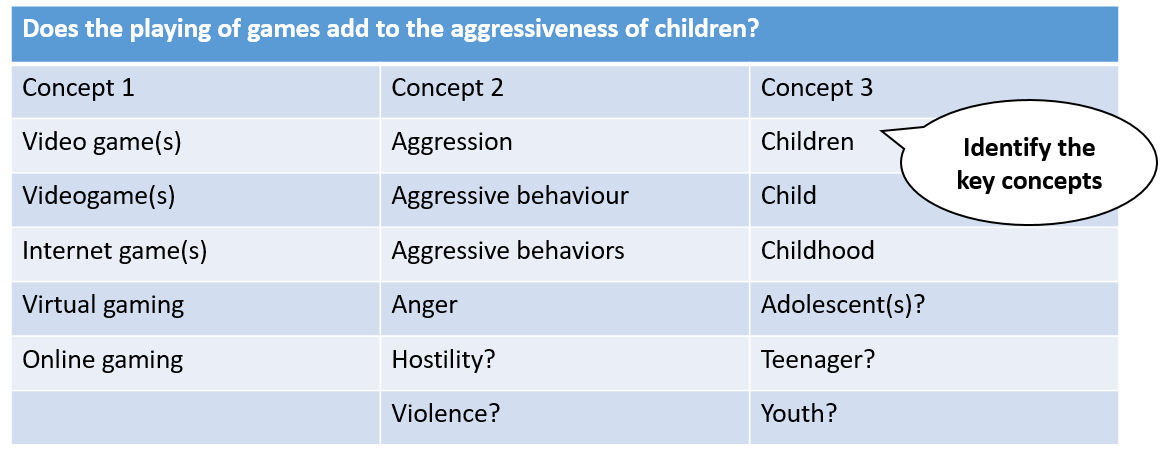Defining the search topic
- What problem are you trying to solve?
- What question are you trying to answer?
These are the types of questions you will have to answer the first when you analyse your information needs and identify the key concepts. At this stage, you will not systematically search literature. You may need to gather background information. If you are unfamiliar with your topic, the main focus is to get an overview of it. The better you prepare yourself, the better the search will be and the more relevant the answers.
Tips:
- Dictionaries (e.g. MOT, link opens in new window), encyclopedias, handbooks and textbooks can be a useful starting point in your research. They can help you define terms or provide a background information. Obtaining background information on your subject can provide you with a context for your research and help you narrow your focus.
- Have you already found some useful articles? Read the abstracts and browse the reference lists. Check also the keywords in the titles and the words at the Subject or Descriptor field.
- Reading a general text or doing some browsing on the Internet can be also a helpful way of clarifying your thoughts.
To do:
- Break your topic into main concepts. Define keywords for each concept. Keywords are the words you type into the search box when using a search tool. It may be a good idea to have a piece of paper and write them down.
- Using mind map, PICO or similar frameworks can help you to outline your research problem and divide your question into its main concepts.
- Depending on the search topic, you can usually define the key concepts and the supplemental concepts. The key concepts are the very essential core of the topic and the supplemental concepts help to outline the question.
- Expand your list by thinking of synonyms, related terms and phrases. There is usually more than one way to describe a topic, e.g. work related well-being, job satisfaction, employee well-being or another, global warming, climate change.
- Think broader and narrower terms as well. Which words would narrow down your topic? What is the broader context?
- Are any of the parts more important than others? What are the aspects you decide to focus on? These aspects will be your inclusion criteria and the aspects you don’t want to focus on will be your exclusion criteria. Example global warming and Arctic Sea (some specific area) or social policy and youth unemployment (not adults or all unemployment).
- Can your term be spelt in different ways? UK and US spellings often differ, e.g. behaviour vs. behavior. What about plurals? Example corporation or corporations.
- Are there common abbreviations or acronyms? Example HRM – human resource management.
See below how a research problem has been broken down into concepts:

These keywords are the search terms that you enter into the database to describe the topic of items that you want to search. If one word doesn’t work, you can simply replace it in your search strategy with another one. The database will word-match your keywords against the text of the items and deliver only results that match what you enter.
(8/2024 RH)